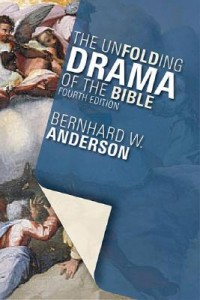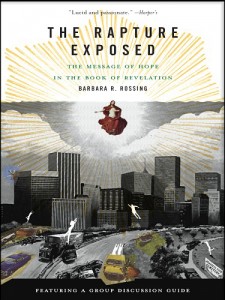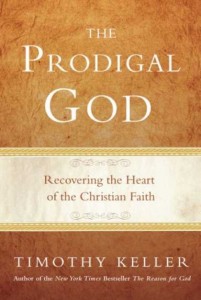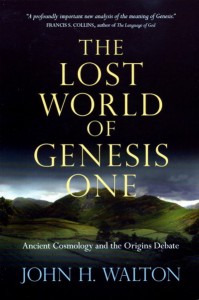There is a lot of debate about marriage – what it is, who can participate, and why it exists. Gay marriage is obviously the hot button issue of the day, but I suspect in coming years we’ll be talking about polygamy (or polyamory), human-animal relationships, human-robot (for lack of a better word) relationships, and pedophilia. When I say these things, I’m not trying to be an alarmist or to invoke the “slippery slope” argument. Rather, as I look into the future, these are the sexually-oriented discussions/debates I see coming in our society.
In order to respectfully and effectively engage with an unconfessing society on these issues, it is important for Christians to have a proper understanding of how the Scriptures define marriage. The standard Christian definition of marriage is this:
one man + one woman = marriage
As I look into the Scriptures, I can affirm that a committed, monogamous relationship between two people of the opposite sex is God’s biological design for marriage and sexual intercourse. However, to say that the Bible defines marriage as one man + one woman is far too simplistic and fails to take into account the incarnation, a New Testament ecclesiology, and a fully biblical eschatology. The most biblical definition of marriage is this:
marriage = Jesus + Church
Let’s look at this passage from Ephesians 5.
Submit to one another out of reverence for Christ.
Wives, submit yourselves to your own husbands as you do to the Lord. For the husband is the head of the wife as Christ is the head of the church, his body, of which he is the Savior. Now as the church submits to Christ, so also wives should submit to their husbands in everything.
Husbands, love your wives, just as Christ loved the church and gave himself up for her to make her holy, cleansing her by the washing with water through the word, and to present her to himself as a radiant church, without stain or wrinkle or any other blemish, but holy and blameless. In this same way, husbands ought to love their wivesas their own bodies. He who loves his wife loves himself. After all, no one ever hated their own body, but they feed and care for their body, just as Christ does the church— for we are members of his body.“For this reason a man will leave his father and mother and be united to his wife, and the two will become one flesh.” This is a profound mystery—but I am talking about Christ and the church. However, each one of you also must love his wife as he loves himself, and the wife must respect her husband.
Paul is going on and on about marriage, even quoting from God’s blessing upon the first marriage in Genesis, but then he makes this strange statement: This is a profound mystery—but I am talking about Christ and the church. He was talking about marriage, but he was really talking about Christ and the church. The relationship between Jesus and the Church is the theological and cosmic reality that explains flesh and blood marriage. In other words, human marriage is a metaphor for the relationship between Jesus and the Church. Our marriages are but shadows of the ultimate relational reality, which is founded on the greatest demonstration of agape love the universe has ever known.
Marriage, according to Scripture, isn’t the inevitable, relational conclusion with the person you “love” most. Rather, it is a flesh and blood demonstration of the agape love of Christ for humanity, and the Church’s reciprocating agape love for Jesus. Biblical marriage is a parable of God’s great love for humanity.
[toggle title=”A Semi-Tangent on Revelation 21-22″ state=”open”] One of the most important passages in all of Scripture is at the very end: Revelation 21-22. In this text, we see the bride of Jesus coming down out of heaven from God – a glorious city. Now we should immediately ask ourselves this question: “Is Jesus really going to marry a city?” No, of course he’s not. So what does the city represent? The city represents us, the Church. The message of Revelation is essentially this: Through all the trials and tribulations meted out against believers (particularly by the Roman Empire, symbolized by the great city Rome/Babylon), God has been preparing a bride worthy of his Son. When the bride finally makes her appearance, her beauty, glory, power, and vastness is almost beyond description. The image is of a city that far surpasses the beauty and glory of Rome, so as to make the so-called center of the world seem like a small, insignificant, backwater hamlet. We can take heart, then, that God is preparing us in character and capacity to be betrothed to his Son for eternity in a marriage based not on eros (romantic) love, but on agape love. In other words, at the end of the Bible is a wedding. Jesus is the groom. The Church is the bride. Therefore, biblical marriage = Jesus + Church. [/toggle]So, if the biblical definition of marriage is Jesus + Church, what does that mean for our marriages?
First of all, it means that we evangelicals need to repent of our idolatry of marriage. While the wider culture has prostituted themselves to the god Eros, the Church has prostituted herself to the gods of marriage and family. Rather than run to Jesus, we have turned to a “sanctified” outlet for our own uncontrollable sexual impulses. We have normalized marriage and marginalized singles. Because of our idolatry, God has turned Christian marriage into Shiloh (look at Jeremiah 7 and listen to this sermon for more info on Shiloh), and as a result we evangelicals have lost all moral authority to speak on the “sanctity” of marriage. It’s time to repent of our idolatry.
Secondly, it means that agape must be the definitive love of marriage. Romantic love is a beautiful gift from God, but it is only a temporary endowment from our Creator. The eschatological marriage between Jesus and the Church is founded exclusively on agape love, and because our flesh and blood marriages are metaphors and shadows of this eternal reality, agape is essential in Christian marriage. Our marriages most clearly reflect the cosmic reality to which they were designed to point not when we are most “in love” with our spouse (though that is certainly a beautiful gift for which we ought to be extremely grateful), but when we willingly lay down our lives, surrender our rights, and forgive offenses for the sake of our spouse.
Thirdly, it means that all sexual immorality is out of bounds for Christians because marriage is foundationally about Christ and the Church. So what is sexually immoral? All sexual activity that does not reflect the relationship between Jesus and the Church. Premarital sex is out of the picture because we patiently wait and persevere for Jesus to return, at which point we will be betrothed to him in agape forever. Adultery is out of bounds because Jesus is faithful, even when we are faithless. Polyamory/polygamy is immoral because there is one Jesus and one Church. Homosexual activity/marriage is out of bounds because of the “otherness” expressed within the eternal marriage – Jesus (the bridegroom) and the Church (the bride) are fundamentally different, and yet are united forever in agape love.
There is so much more that could be said on this topic, particularly as it pertains to abuse, divorce, children, and a host of other issues. But the point I wanted to make was that there is a theology of marriage that we often miss in our knee-jerk, reactionary opposition to gay marriage, and that without this theology the rest of the argument falls apart. Marriage is between one man and one woman because marriage is biblically defined as Jesus and the Church; to start anywhere else when engaging our culture on the issue of marriage is to put the cart before the horse.
We Christians ought to be leading the world in marriage, but we’re not. We have substituted politics for theology. We have shirked Jesus and worshipped the gods of marriage and family. We have used marriage as a safety-zone for our out-of-control sexual impulses rather than as the fertile ground of agape love. We have, frankly, been no different than the unconfessing world in lust, selfishness, divorce, ignorance, and sexual immorality. Is it any wonder that they won’t listen to us?
Our destiny is to live in agape-based, eternal marriage with the crucified and risen Son of God. No one on earth should have a higher view and practice of marriage than those who understand that it is a parable of the eternal reality that awaits those who believe. Let’s change that. Let’s get the foundation right, seeing marriage for what it is – the undying commitment in agape love between the Risen Savior and his Church.




